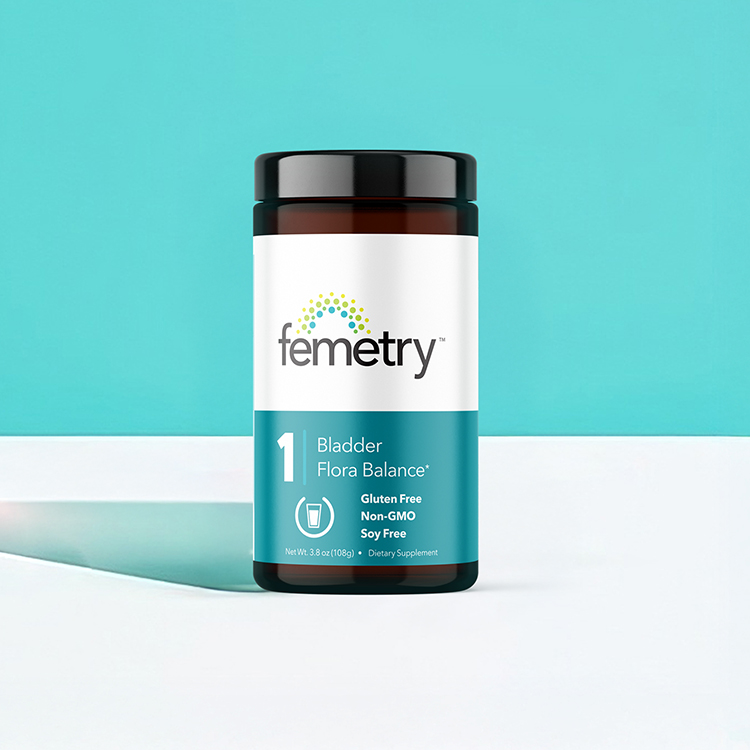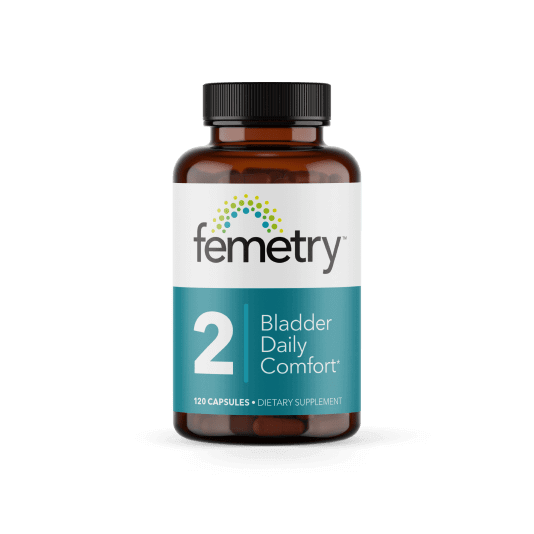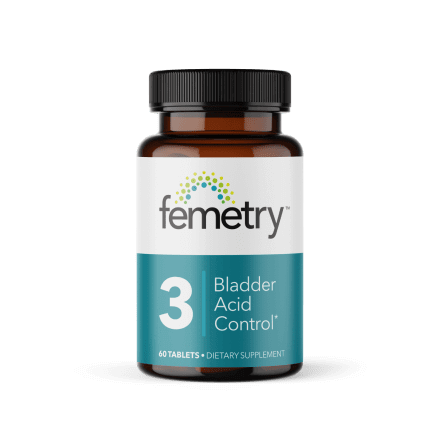Femetry and men
Exploring Interstitial Cystitis in men.

 Interstitial Cystitis in men is largely understudied. As a result, there are limited treatment options and very little information available for patients or medical professionals.
Interstitial Cystitis in men is largely understudied. As a result, there are limited treatment options and very little information available for patients or medical professionals.
Interstitial Cystitis, also known as Bladder Pain Syndrome (IC/BPS) affects millions across the globe. In the U.S. alone, this condition disproportionately affects women (nearly 8 million) compared to men (nearly 4 million). However, regardless of gender, Femetry is an effective support system for IC/BPS symptoms. We also provide a wealth of educational resources that are beneficial to men and women.
Femetry is the only doctor-formulated, multipoint system that targets the symptoms of IC/BPS.
Understanding Interstitial Cystitis in men.
Similar to women, diagnosis of IC/BPS in men can be challenging. IC/BPS can mimic the symptoms of other other urinary conditions, such as prostatitis or UTIs.
A comprehensive evaluation typically involves:
- Medical history: Detailed discussion of symptoms, medical history, and any potential triggers or exacerbating factors.
- Physical exam: A thorough physical examination is conducted, including a pelvic exam, to assess for any signs of inflammation or tenderness.
- Urinalysis: A urine test that looks for signs of infection or other abnormalities.
- Cystoscopy: A procedure in which a thin, flexible tube with a camera is inserted into the bladder to visualize the bladder wall and rule out other conditions. Often, doctors combine this procedure with a hydrodistention, where they fill the bladder with a solution.
Symptoms in men.
Men with IC/BPS may experience symptoms slightly differently than women.
Common symptoms include:
- Bladder and/or pelvic pain: Persistent discomfort or pain in the bladder area, often described as a constant pressure or ache. This may radiate to the lower abdomen, groin, or perineum.
- Urinary urgency: An urgent need to urinate, even with small volumes of urine.
- Urinary frequency: Men with IC/BPS may find themselves urinating more often, including waking up multiple times during the night to urinate (nocturia).
- Pain during urination: Some men may experience pain or a burning sensation while urinating, similar to a urinary tract infection (UTI).
Learn more about the Femetry Bundle.
Femetry has three powerful formulas that focus on urinary tract health and target IC/BPS symptoms.

Bladder Flora Balance
Ensures your urinary microflora stays balanced and lessens bladder discomfort.⃰
Learn more
Bladder Daily Comfort
Helps replenish the bladder lining and eases urinary tract discomfort.⃰
Learn more
Bladder Acid Control
Reduces the acidity of the urine, easing flares caused by consuming acidic foods.⃰
Learn more
Urinary Cleanse & Flora Balance
Ensures your urinary microflora stays balanced and lessens bladder discomfort.⃰
Learn more
Bladder Daily Comfort
Helps replenish the bladder lining and eases urinary tract discomfort.⃰
Learn more
Bladder Acid Control
Reduces the acidity of the urine, easing flares caused by consuming acidic foods.⃰
Learn morePotential causes of IC in men.
Researchers are continuously exploring the true causes of IC/BPS. Currently, they’ve hypothesized several factors that may contribute to its development.
- Defective bladder lining: Dysfunction of the protective lining of the bladder may allow irritants to penetrate the bladder wall. This leads to inflammation and pain.
- Nerve damage: Possible injury or trauma to the urinary tract could damage the nerves in that area. Moreover, some people have nerve abnormalities that cause heightened sensations of pain and urgency.
- Autoimmune reactions: IC/BPS may occur when the immune system wrongly attacks the bladder tissue, possibly due to an autoimmune response.
- Genetics: There may be a predisposition to developing IC/BPS.
- Inflammation: Chronic inflammation in the bladder and surrounding pelvic region may contribute to the development and persistence of IC/BPS symptoms.
IC/BPS management and treatment.
There is no cure for IC/BPS. However, there are several management strategies that can help alleviate symptoms and improve quality of life.
- Bladder training: These techniques help gradually increase the intervals between urination and reduce urinary urgency.
- Pelvic floor physical therapy: Exercises and techniques to strengthen the pelvic floor muscles and relieve pelvic pain.
- Medications: Oral medications, bladder instillations, or nerve pain medications may be prescribed to help manage pain, reduce inflammation, and improve bladder function.
- Dietary changes: Some people find relief by avoiding certain foods and beverages that can irritate the bladder, such as caffeine, alcohol, acidic foods, and spicy foods.
- Stress management: Stress and anxiety can exacerbate symptoms, so stress-reduction techniques, such as mindfulness, meditation, and relaxation exercises, may be beneficial.
- Supplements: It’s important that your body is receiving enough nourishing ingredients to help soothe specific IC/BPS symptoms. Discover which ingredients work best.




